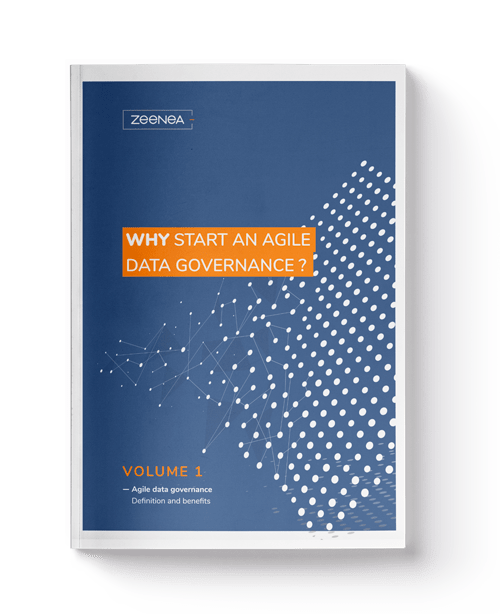With both the increasing need for digital transformation and power of IT solutions, the place of data in corporate strategies is exploding. A reality that makes the notion of data governance an unavoidable priority. Here’s a look back at a challenge that will remain crucial in 2021!
With the growing importance of new technologies, companies are at a crossroads. On the one hand, they are collecting and producing huge volumes of data. On the other hand, they must be able to harness the full richness of this data to adapt to their markets in real time.
The challenge? Implement robust data governance strategies to ensure not only the accuracy and relevance of data, but also its reliability and security.
But the challenge does not stop there! They must also provide their teams, internally, with the information they need to fulfill their missions. According to estimates published in Statista’s Digital Economy Compass 2019, the annual volume of data created worldwide has increased more than twenty-fold between 2010 and 2020, and reached 50 zettabytes this year! 50 zettabytes, that’s 500 million 100TB hard disks. A dizzying figure, which only goes to illustrate the importance of defining a real data governance policy.
The question is not limited to a simple concern for storage or security, but also and above all for the exploitation of the data. An exploitation that allows the company to develop a precious asset to facilitate the daily life of its teams and the satisfaction of its customers!
In fact, Gartner stated: “The uncertainty ushered in by 2020 will stay with us for multiple years to come. But with disruption comes enormous opportunity to not just restart what we used to do, but forge new paths. Data and analytics leaders that thrive will design and execute on a strategy that accelerates change, builds resilience and optimizes business impact.”
Starting Data Governance
No one doubts the importance of a data governance policy anymore. The COVID-19 crisis is a clear illustration of this. Health data are critical to controlling the epidemic and when governance is not properly in place, the consequences can be disastrous.
Strictly speaking, data governance is the overall management of the availability, usability, integrity and security of the data used in an organization. But behind this principle, there are the facts… and organizational or technical difficulties. Within a company, the definition of an appropriate data governance policy must rely on the right people. The team in charge of the data governance policy guarantees the determination of standards, the use and integration of data between projects, domains and business sectors… A demanding mission that requires taking up complex challenges.
Meeting today’s data governance challenges
Since the place of data is central to the life of a company, it is, more than ever, essential to abolish the silos that too often hinder the optimal use of data. This is the very heart of a data governance project: ensuring that data becomes valuable information. A challenge that involves democratizing data access to non-IT profiles.
All business departments must be able to manipulate, exploit and interrogate data.
To achieve this, the solutions deployed in organizations must offer an intuitive and ergonomic experience. But behind the sharing of information, which brings with it the notion of data quality, there is the constant challenge of securing data… especially when your employees are not physically present in the company and access this strategic asset from home, for example. Identity management and compliance with “best practices” in terms of IT security must be the subject of constant support. This support must be the immediate counterpart to the development of an internal culture of data governance.
Developing policies, procedures and practices that enable effective control and protection of data, while at the same time strengthening the way it is handled and used, is the DNA of a Data Governance policy!
It’s never too late to start your data governance journey!
Learn how to implement agile data governance for your enterprise by downloading our free what paper: “Why start Agile Data Governance?”. In this guide you will discover:
- The definitions of data governance
- The benefits of implementing a data governance strategy
- What it means for data governance to be agile
- 5 key attributes for your enterprise to start deploying agile data governance in your organization!














